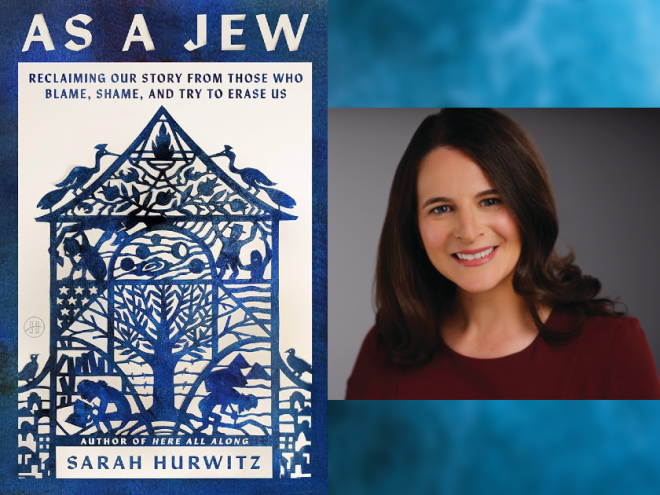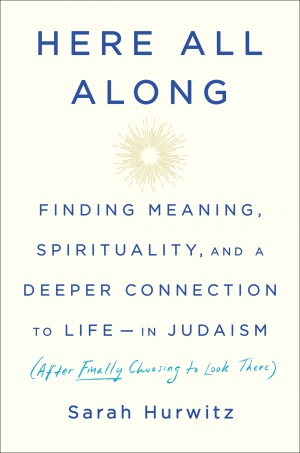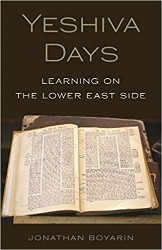In recent years, there is perhaps no topic more explored in American Jewry than the rise of antisemitism. As such, books must approach the topic from a unique perspective to stand out, occupying their own niche in relation to the other books in the field. As a Jew: Reclaiming Our Story from Those Who Blame, Shame, and Try to Erase Us by Sarah Hurwitz distinguishes itself as one of the more accessible books on the topic of antisemitism in recent years. It is straightforward without losing nuance, historical while still feeling very of the moment, and simultaneously personal yet able to touch readers with diverse backgrounds.
This accessibility should come as no surprise. Sarah Hurwitz is a former speechwriter for Michelle Obama. She wrote her first book, Here All Along, after taking an introduction to Judaism course and realizing that despite dropping out of Jewish education as a child, Judaism is very much also for adults. As a Jew reads as a companion to this first book. Where Here All Along spoke about the wonderful and beautiful aspects of the Jewish experience, As a Jew speaks about the struggles Jews face as we walk through the world.
Nearly every chapter begins with a personal anecdote that introduces many of the themes contained within. In one instance, Hurwitz feels inspired to read the New Testament as part of her hospital chaplaincy training, only to confront many inflammatory stereotypes: that Jews killed Jesus, that the Old Testament exists to prefigure Christ, and that Christianity has “superseded” Judaism as the true religion. These revelations provide her with an opening to explore the history of antisemitism within Christianity and the harm that many of these beliefs have done to Jews over time.
Another anecdote found Hurwitz defending the idea of the bris to a patient — who simply mentioned that she had attended one — because of her internalized discomfort with the ritual. The shame of her reaction leads her to explore Dara Horn’s dichotomy between “Purim antisemitism” (overt hatred and attempted physical harm of Jews) and “Hanukkah antisemitism” (societal pressures to assimilate and conform at the expense of one’s Jewish identity). Hurwitz masterfully traces the impulse to “fit in” from the Hellenistic period through today, explaining why Jews have felt a need to abandon Jewish practice for the sake of others, and how that subsequently affects the Jewish community.
Readers will likely find Hurwitz’s treatment of left wing anti-Zionism to be particularly interesting given the discussions going around many college campuses. Hurwitz is not an automatic supporter of Israel’s actions, but discusses the issues in a nuanced manner. She unpacks various facets of the anti-Zionist movement, providing readers — especially current students — with the tools to navigate this challenging landscape.
Hurwitz’s prestige — from her first book to her time in the White House — has led her across the country, especially to campuses throughout America where is able to connect with students. In one of the most moving chapters, As a Jew ends with a call for deeper Jewish engagement. Rather than shy away from their religion, Hurwitz implores these students to lean in, studying more and being unapologetically Jewish.
Rabbi Marc Katz is the Rabbi at Temple Ner Tamid in Bloomfield, NJ. He is author of the books Yochanan’s Gamble: Judaism’s Pragmatic Approach to Life (JPS) chosen as a finalist for the PROSE award and The Heart of Loneliness: How Jewish Wisdom Can Help You Cope and Find Comfort (Turner Publishing) which was chosen as a finalist for the National Jewish Book Award.





